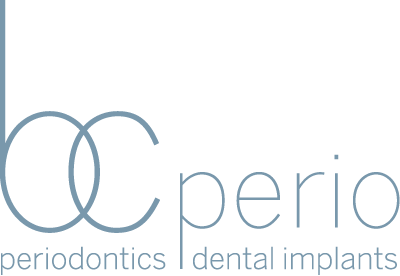Periodontal disease, or gum disease, is one of the most common causes of tooth loss. Fortunately, it can be prevented with diligent dental care. If you do have problems with your gums, your periodontist can provide treatment that can help you keep your teeth.
Keeping Your Gums Healthy
Gum disease, like tooth decay, occurs because of bacteria in your mouth. The bacteria causes inflammation of the gums. At this early stage, gum disease is referred to as gingivitis. This means swelling in the gingival tissues. Gingivitis is relatively minor and not difficult to treat. Your periodontist might recommend baking soda toothpaste or a similar treatment to reduce the inflammation.
To prevent gingivitis, your first step is to brush and floss regularly. This removes food particles that remain in your mouth and also clear away plaque that develops on the tooth surfaces. It also helps massage your gums to maintain healthy circulation. Flossing ensures any food particles are removed from between your teeth and from just under the gumline, where bacteria and plaque tend to collect.
Symptoms of Periodontal Disease
If you are developing gingivitis or more advanced periodontal disease, some symptoms might alert you that you need treatment from your dentist or periodontist. Symptoms to look out for include:
- Bleeding when you brush or floss
- Redness in the gums
- A shiny appearance to the gums
- Sensitivity along the gum line
- Pockets developing between the teeth and gums
If you develop any of these symptoms, you should tell our dentist. Our dentist or dental hygienist will evaluate your teeth and gums at your regular appointments. Measuring the depth of the pockets around your teeth is an important diagnostic tool, and should be performed at each appointment. If the pockets are more than one or two millimeters deep, you might require treatment for gingivitis.
If your periodontal disease progresses and becomes more serious than simple gingivitis, you might require more intensive treatment. This can include deep cleaning beneath the gum line or, in very serious cases, gum surgery or gum grafts.
Call Dr. Brad Crump today and set up your next appointment!
